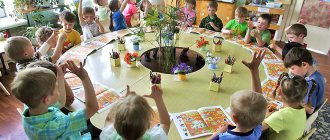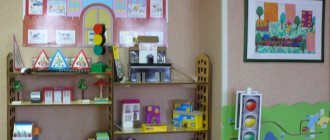Psychological games: basic rules
Psychologist's sessions with teenagers and children are most effective if they are presented to a young audience in the format of a game in which all the assembled participants are involved. The game allows you to comprehend certain aspects of human psychology and adapt in the most effective way within society. The organizer of such events must have practical experience and adhere to the following basic rules for working with children of primary school age and adolescence:
- Explain in accessible language the rules and goals of each psychological training. Examples of real life situations with a similar psychological mechanism of action will be a good help.
- It is important to constantly monitor the emotional state of all group members. To do this, it is recommended to maintain the dynamics of the process at the proper level, avoiding procrastination and a boring atmosphere.
- Participants in the gameplay need motivation. The organizer must be able to not only interest the children, but also demonstrate to them the benefits of psychological training using examples of specific situations.
- It is important to explain to children that collective work is built on the principles of mutual respect, warmth and tolerance for the shortcomings of others.
After each psychological game, you need to arrange a collective discussion, in which all training participants should be involved. Such steps make it possible to build an optimal algorithm for activities that are interesting to the largest number of children and adolescents. The organizer should not position himself as a stern adult, capable of punishing for certain offenses. On the contrary, the most effective is the model of a kind and patient assistant, ready to help in any difficult or conflict situation.
Psychological games for children enable the child to overcome accumulated fears and complexes, and also have the following positive potential:
- allow the child to feel a sense of unity with a group of peers;
- increase self-esteem and strengthen self-esteem;
- help children learn respect for themselves and others;
- teach the child to effectively overcome difficulties and obstacles;
- teach children coordinated group work;
- develop empathy and the ability to empathize with others in the child.
It is very important for the leader of psychological trainings for preschool and teenage children to learn how to create a cozy and friendly atmosphere in which even an introverted child will feel comfortable. When a new group of children gathers, unfamiliar with each other, they may feel a certain constraint, the task of overcoming which lies with the organizer of psychological games.
Psychological games for children 10–12 years old
Chained by one chain
In order to perform the exercise, you need props in the form of a thin long rope and an ordinary key, which is attached to one of the ends of the rope. Participants sit in a circle and take turns passing an improvised chain so that it is threaded from above through the collar and comes out below waist level. When all members of the group are connected with each other, the leader invites them to perform a small physical activity in the form of squats, bends and other simple exercises.
Interesting information! After completing the exercise, you should invite the children to make the key a symbol of friendship and mutual assistance. The training has a metaphorical meaning and allows children to understand the importance of support from others.
Funny pantomimes
When listing psychological role-playing games for children aged 10–12 years, one cannot ignore “Funny Pantomimes”. The organizer prepares props in advance in the form of various items such as a children's synthesizer, drumsticks, guitar, wooden horse, walking boots and others. Each participant is randomly given the number of an object with which he is required to perform a pantomime with or without musical accompaniment.
Important information ! The exercise helps develop imagination and acting talents in children.
Truth or lie
The group settles down in a comfortable environment, after which the organizer announces the conditions of the game: he reads various entertaining facts to the children, then they decide whether what is said is true or pure fiction. The child who answers the question correctly receives 1 point. For an incorrect answer, 1 point is also deducted; the one who first raised his hand offers his version. The child with the most points at the end of the game wins.
This is interesting! This psychological game is designed to develop analytical thinking in children aged 6 to 12 years.



